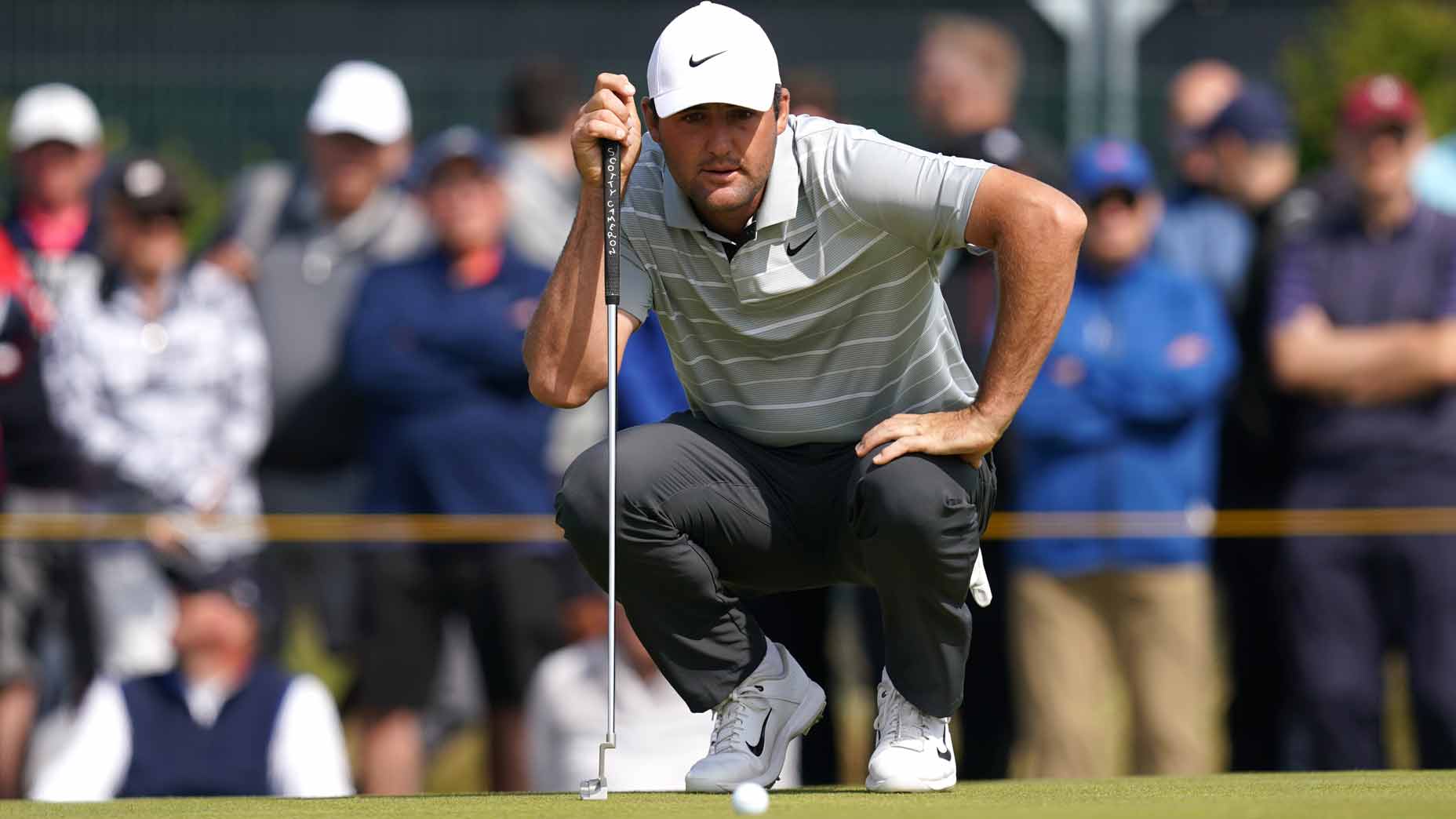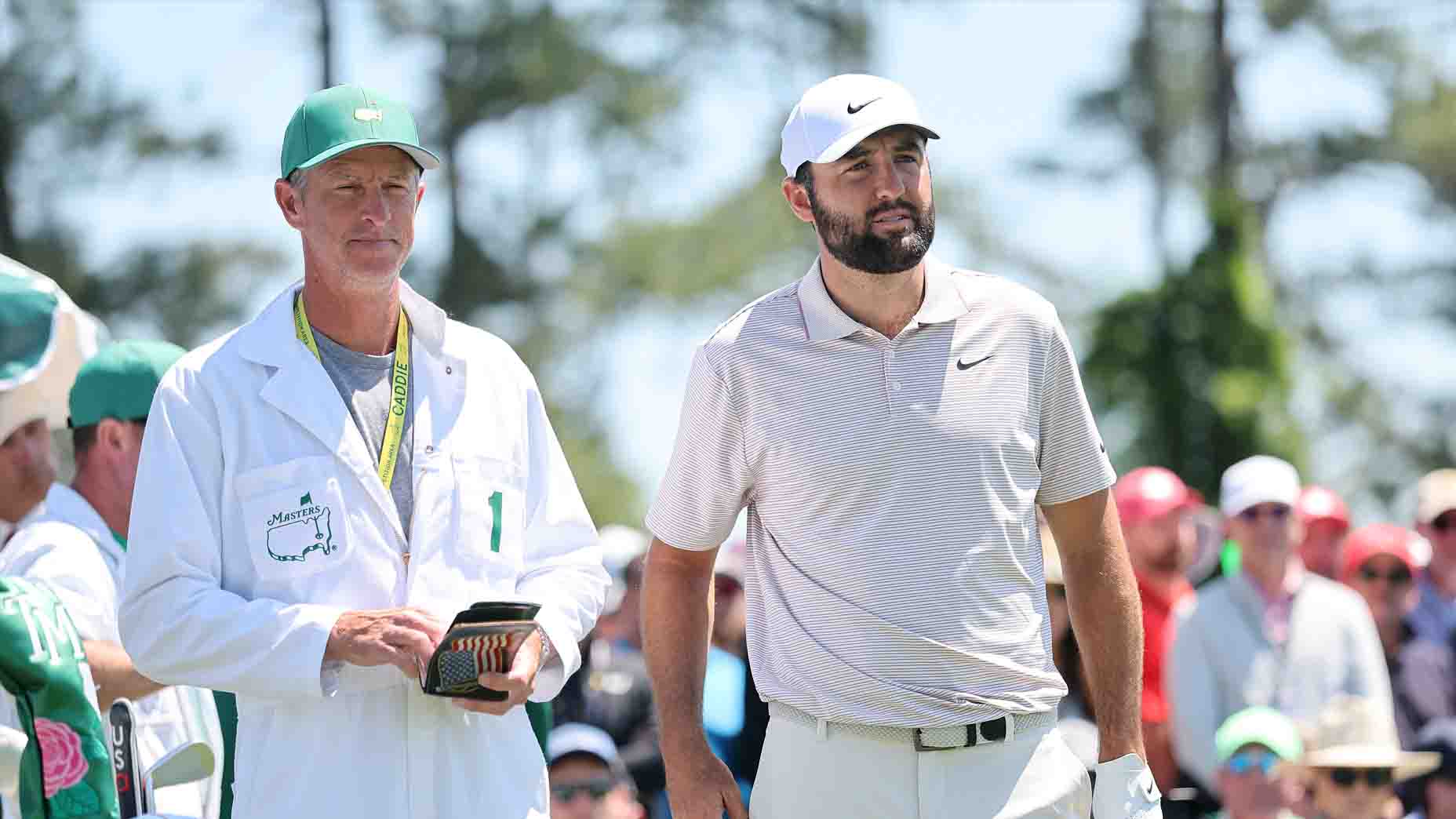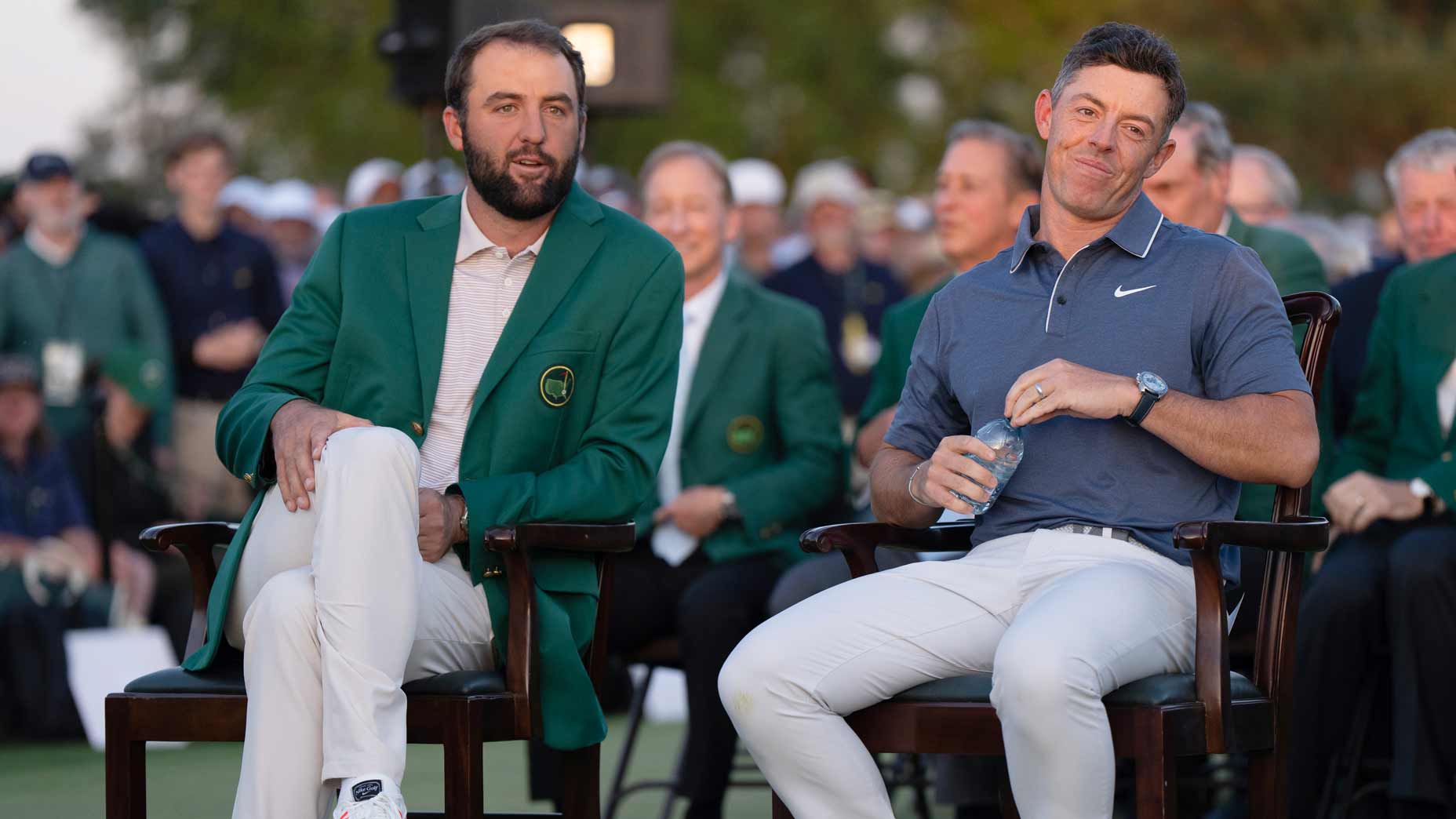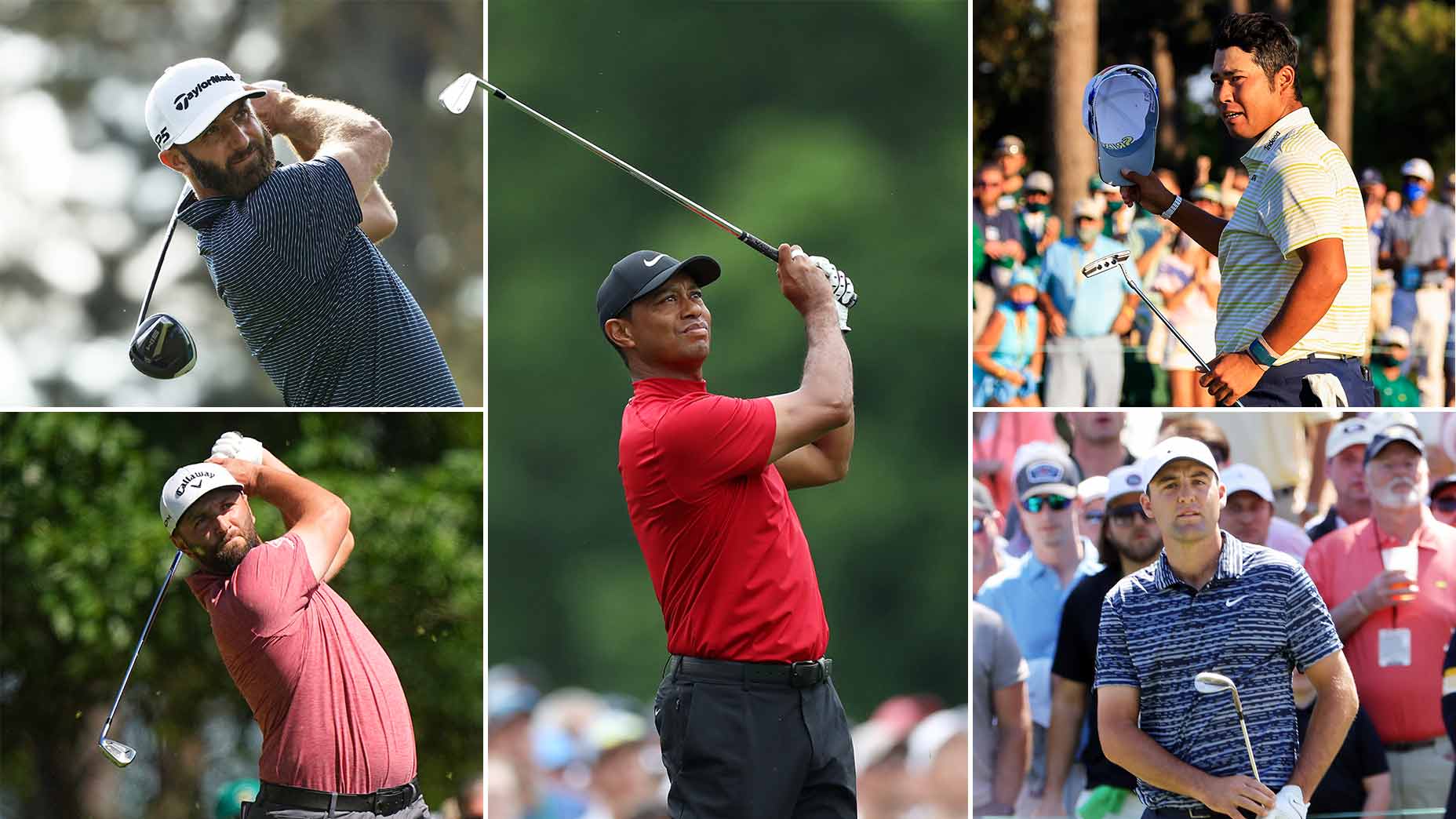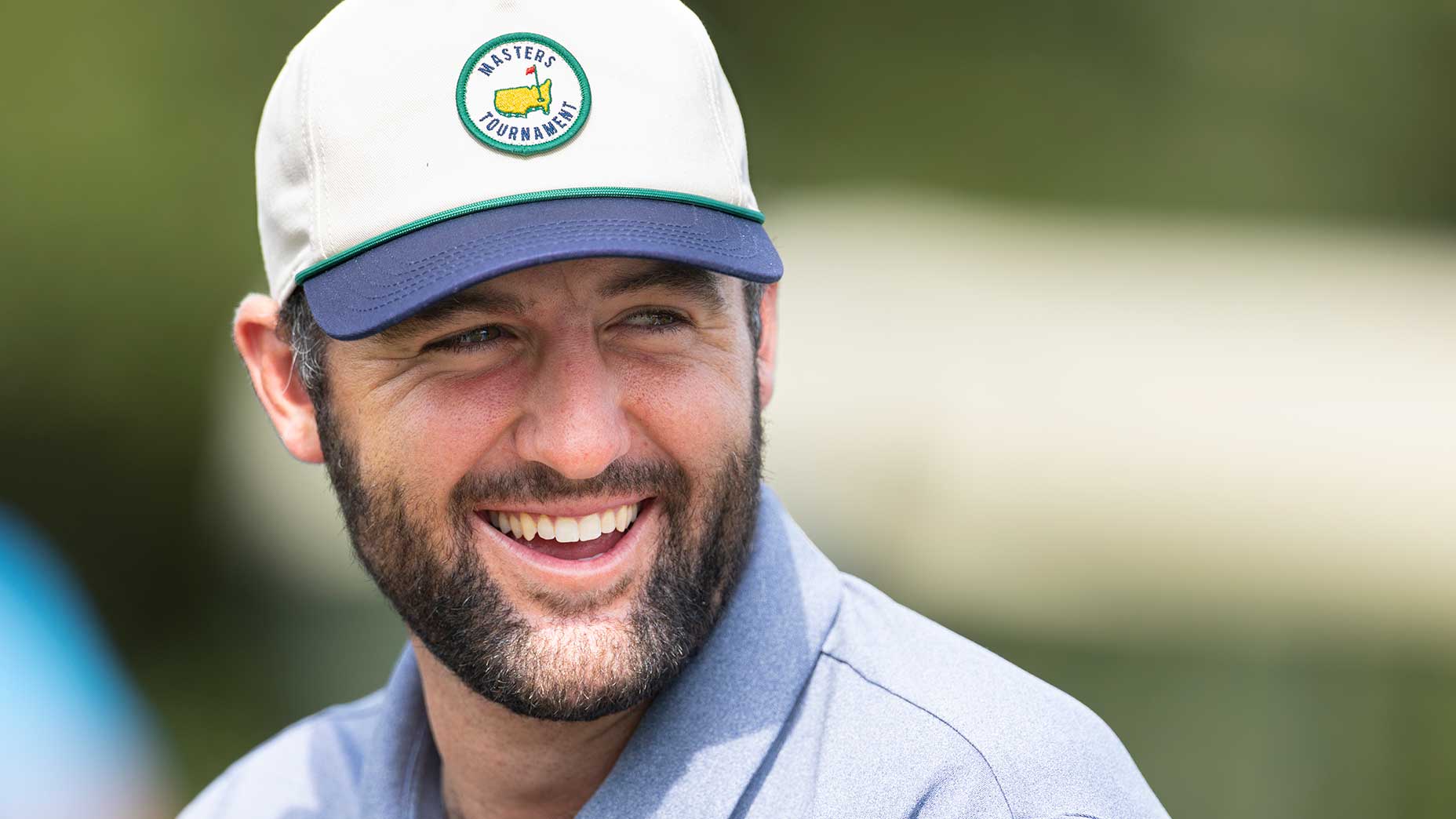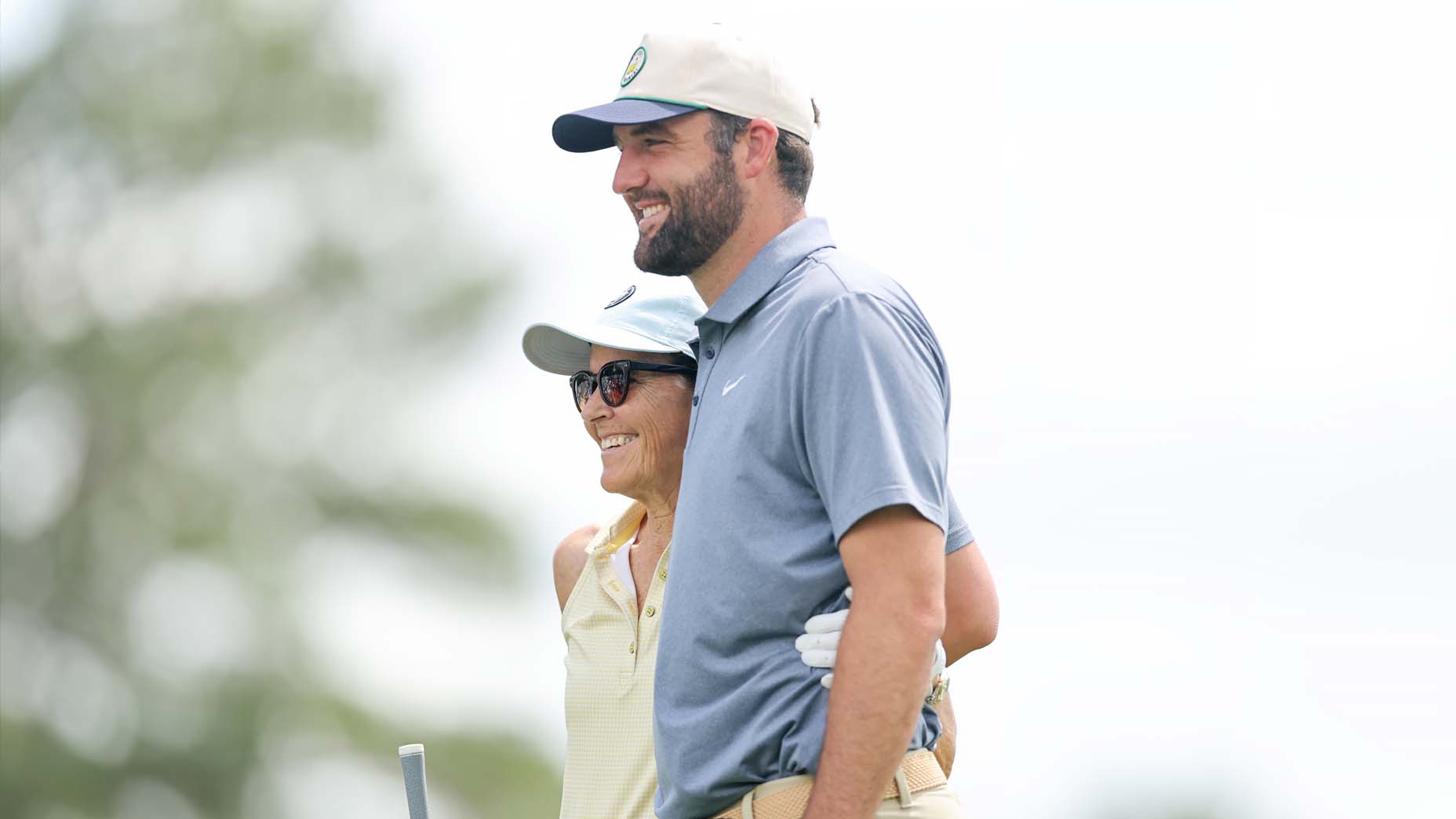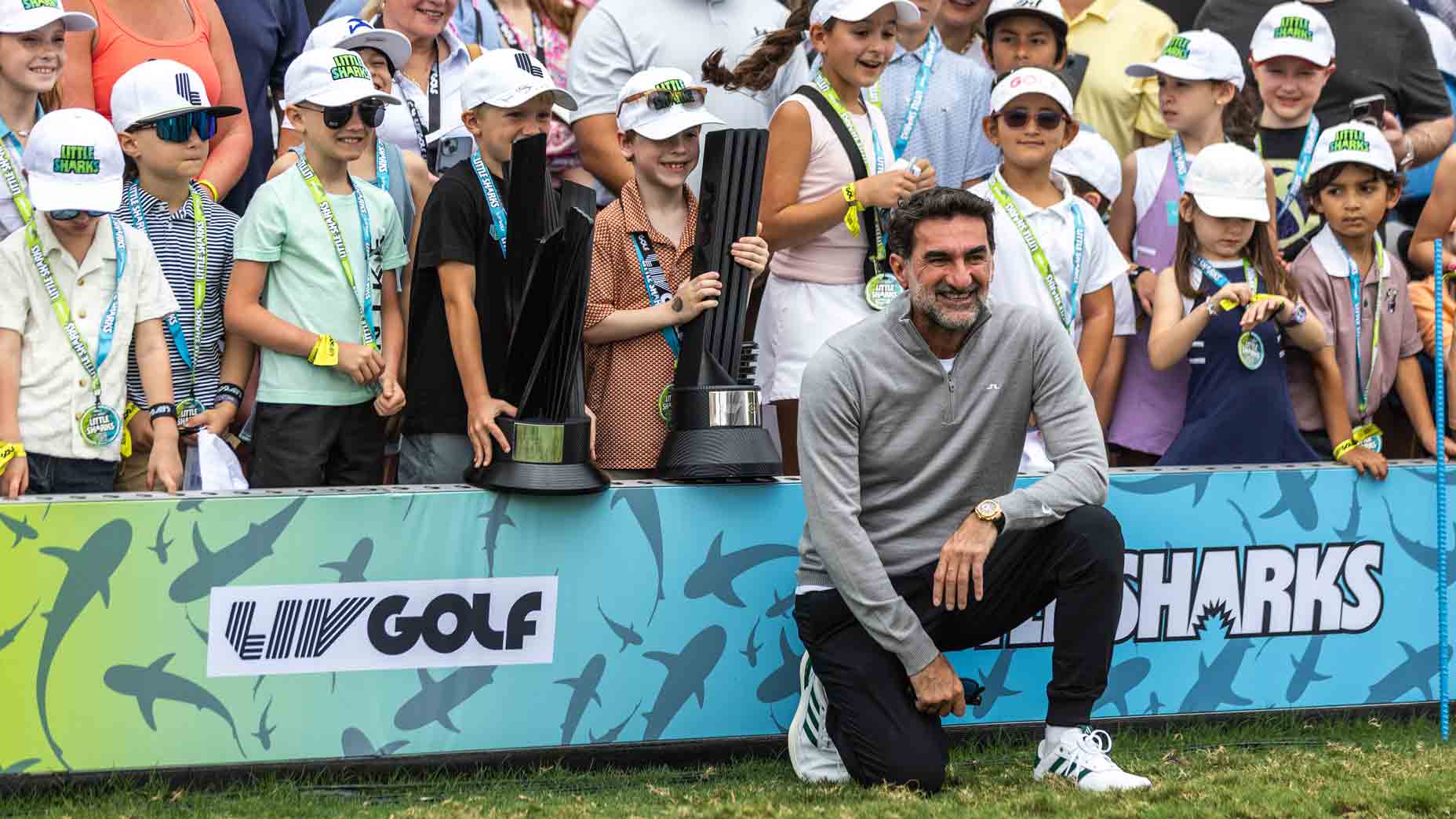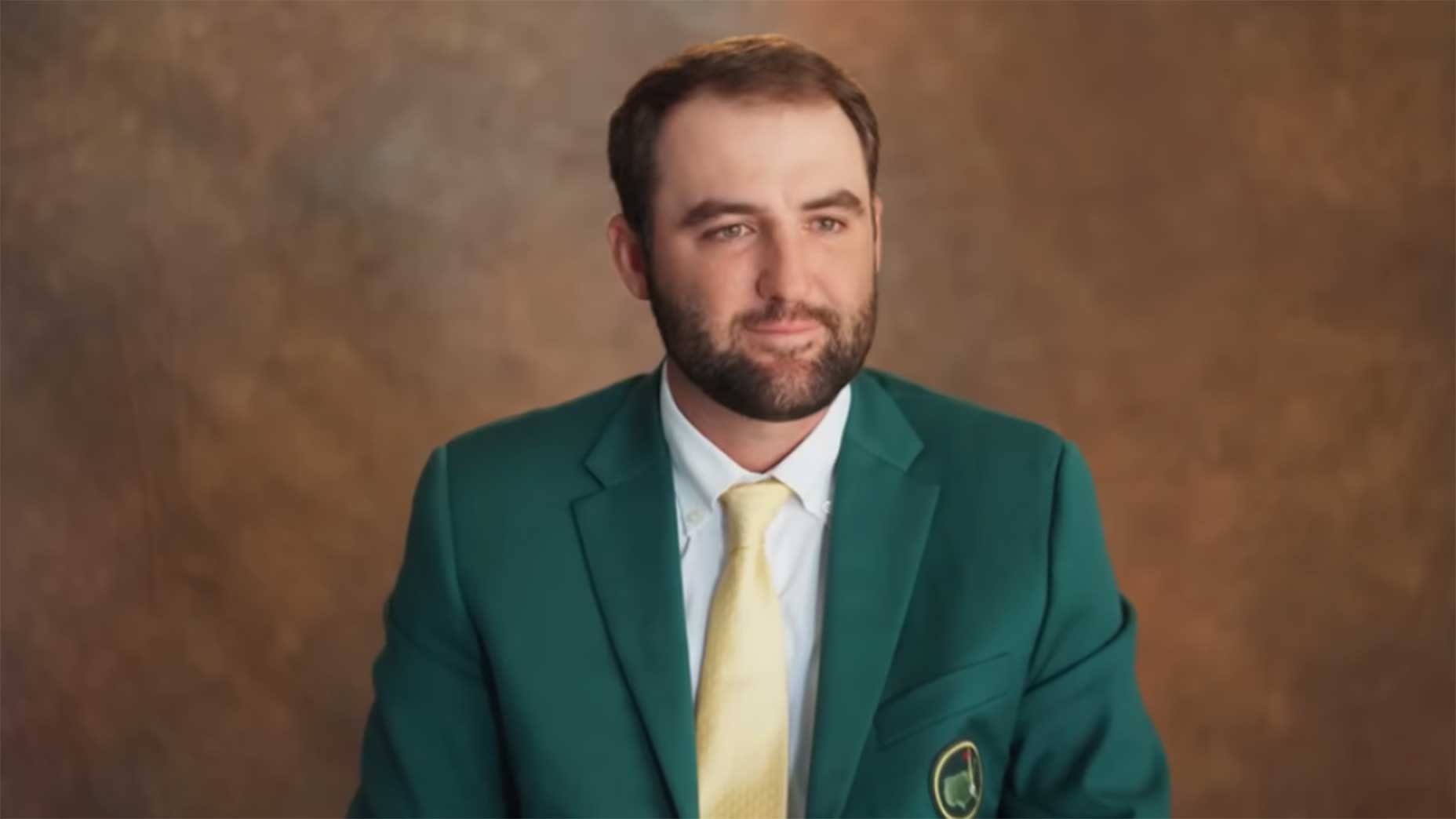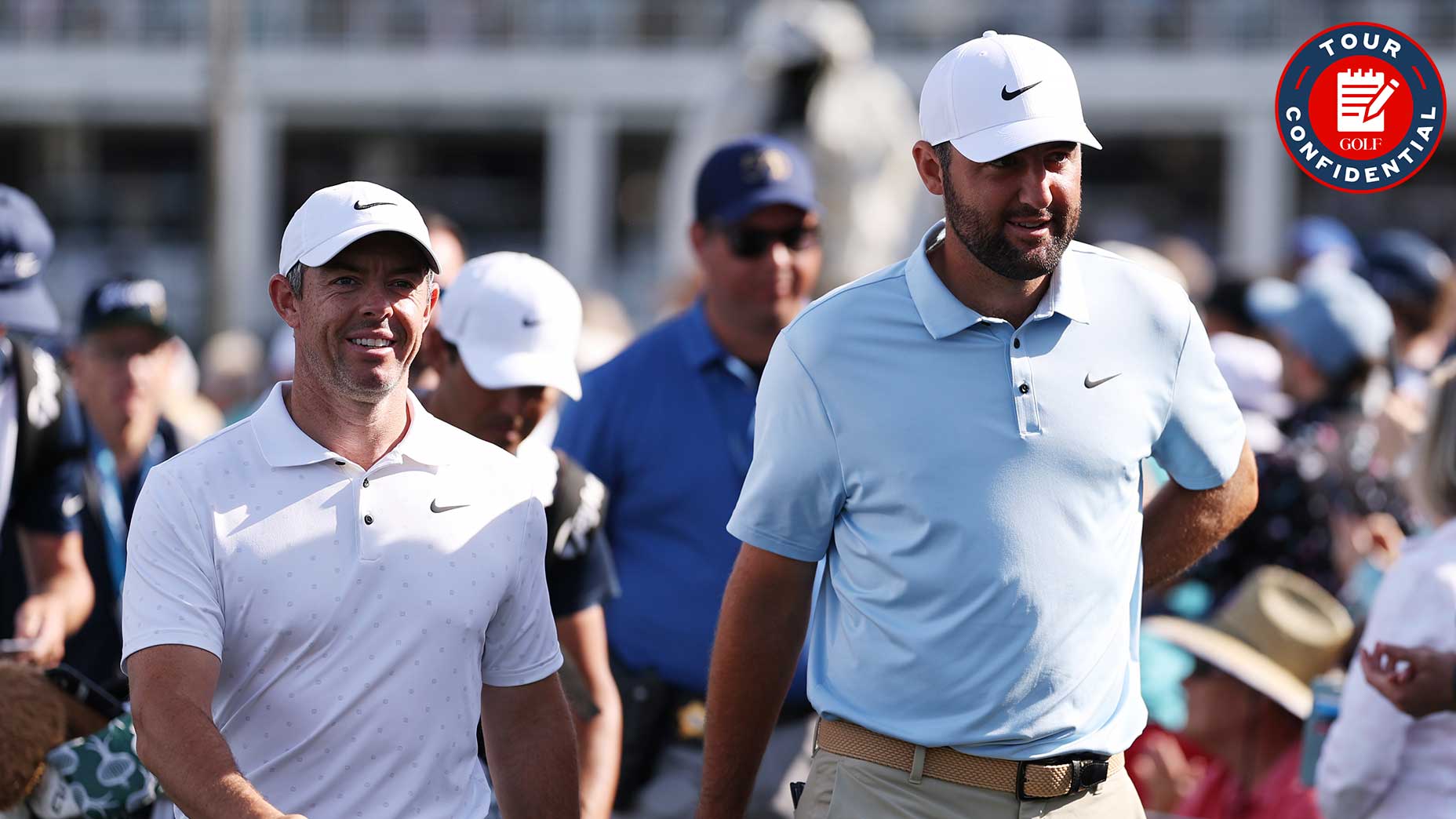Scottie Scheffler’s new putting coach is already making big changes
- Share on Facebook
- Share on Twitter
- Share by Email
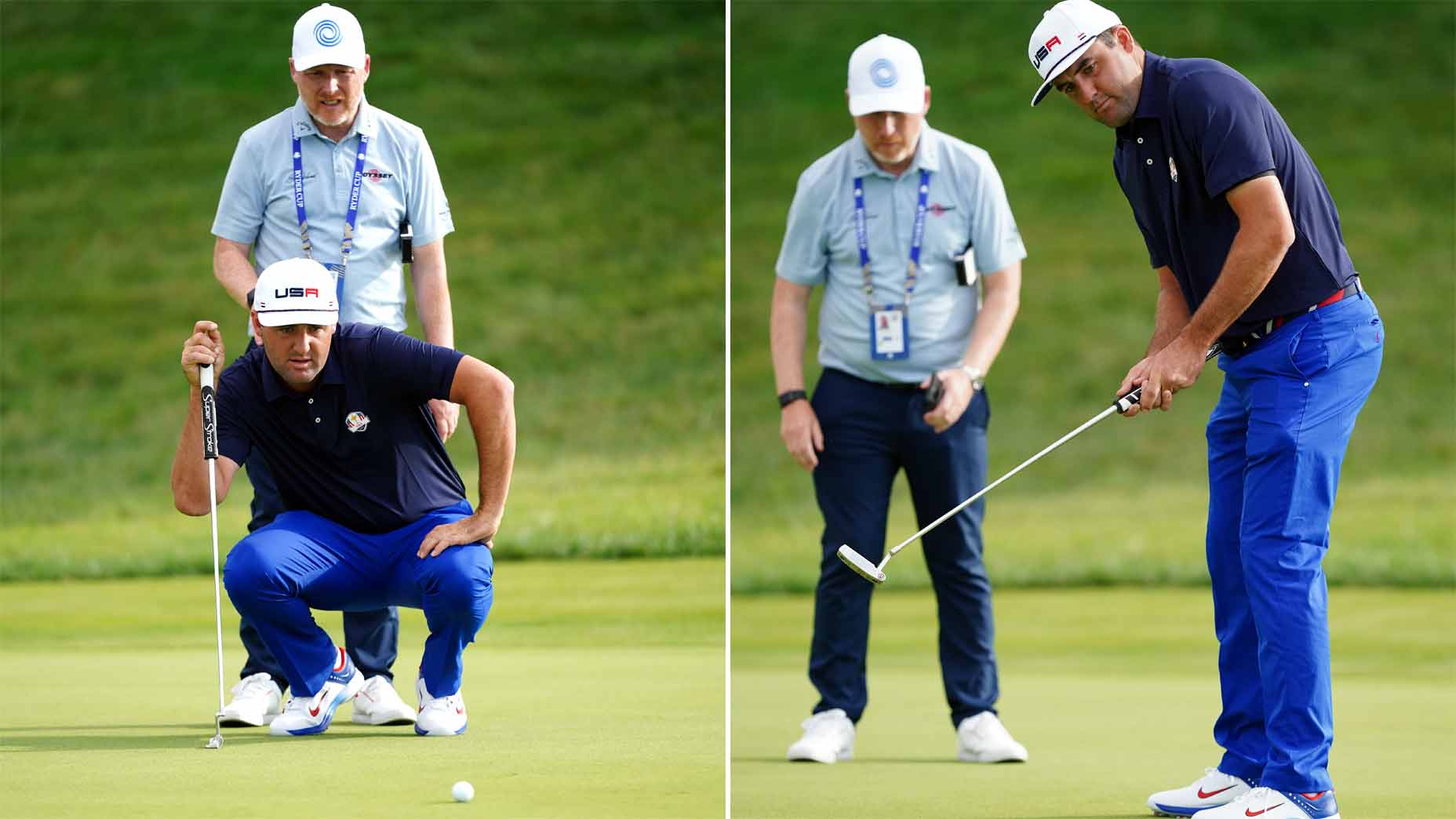
Scottie Scheffler recently teamed up with putting guru Phil Kenyon — and the duo is already making some big changes.
Getty Images
Scottie Scheffler might be the No. 1 player in the world, but that doesn’t mean his game is without its shortcomings. In fact, there’s one element that lags far behind every other facet of his game: his performance on the greens.
It might seem odd that the best golfer in the world is (by professional standards) a subpar putter. Drive for show, putt for dough, right? Not exactly. While Scheffler’s putting has been lackluster, his ball striking has been elite. Last season he ranked first in several strokes gained categories, including off the tee, approach, tee to green and, most importantly, total.
The only element of his game that lacked was putting. In the SG: putting category, Scheffler ranked 151st on the PGA Tour. From 10 feet, he holed 16% fewer putts than Tour average — and that trend is consistent across the board. From 5 feet, he ranked 166th. Inside 10 feet, 147th. From 20-25 feet, 133rd.
Scheffler’s 2023 statistics paint a picture of a player who’s largely inept on the greens. But that’s not totally true. In three-putt avoidance, Scheffler was better than Tour average at 2.08%, ranking 36th among his peers. What does this suggest? Well, it points to a player with good feel (three-putt avoidance tends to come from having good distance control) who, at the same time, is missing something on the technical side.
For anyone familiar with Scheffler’s game, this should make a lot of sense. The 27-year-old is far more artist than scientist — just look at his footwork. He relies on feels far more than numbers. He’s cerebral rather than technical. He’s had the same coach since he was a kid in GOLF Hall of Fame Teacher Randy Smith, and the two have never sought a swing that’s aesthetically pleasing, instead opting for one that Scheffler could consistently groove.
“I’ve never really had an instructor teach me anything really other than Randy,” Scheffler said.
No, Scottie Scheffler’s putting woes are not just a media narrativeBy: Zephyr Melton
Now, that’s changing.
During preparation for his second Ryder Cup appearance, Scheffler was spotted at Marco Simone working with putting guru Phil Kenyon. The putting coach has worked with numerous major champs and Ryder Cuppers in the past, and now he’s added Scheffler to his clientele.
“I called him maybe Monday after the Tour Championship,” Scheffler said. “It was something that I didn’t want to think about as the year went on because it would have been a change, but right when the Tour Championship ended, I was just thinking about it and I was like, oh, I’ll see what he’s up to. And he ended upcoming to Dallas a few days later, and we got some good work in. And it’s been great. He’s a fascinating person to work with.”
Although the two have only been working together for about a month, they’ve already made some noticeable changes to Scheffler’s putting. Check them out below.
Larger grip
The most easily noticeable change in Scheffler’s putting approach comes in the form of the grip he’s using. Thus far in his pro career, Scheffler has stuck with a traditional Scottie Cameron grip on his wand. But when he arrived in Rome this week, he was spotted with a larger grip.

The grip, a SuperStroke Zenergy Tour 2.0, is slightly thicker than traditional grips. Tour pros have long used these types of grips in order to quiet the hands and engage the big muscles during the stroke. It appears Scheffler is the latest to embrace the benefits of these larger grips.
Keeping the toe down
Another change Kenyon has implemented is having Scheffler keep the toe of the putter closer to the ground. As Golf Digest’s Luke Kerr-Dineen noted earlier this week, Scheffler is choking down more on the putter, which means he’s more bent over and keeping the toe closer to the ground.
Scheffler confirmed this change in his pre-tournament presser as he noted that lifting the toe was one of the flaws Kenyon noted in his diagnosis.
“The way I moved the putter through the ball, I was kind of fighting the toe rising on the putter as I went through, and so sometimes I’d miss contact a little bit in the heel,” Scheffler said. “In order for me to try to keep my putter head low, the way I would do it is I feel everything in my hands, and what I would do is I would lower my hands. But when I lowered my hands, it actually caused the toe of the putter to go higher and higher. So as the year went on, my hands are getting lower and lower, and the problem is getting worse and worse.”
With his hands lower and toe higher, Scheffler had a difficult time starting the ball on line — which can explain his poor make rate from key distances. Although he was hitting putts with the proper weight, his ball did not always start on his intended line. Luckily for the former Masters champ, and his U.S. teammates, his work with Kenyon seems to be paying off.
“I see the ball rolling end over end a lot more than I did a month ago,” Scheffler said. “I think the second set of eyes with Phil was really, really helpful. It was good to get my brain in order and feel like I’m working in the right direction versus playing a bit of a guessing game. So Phil has been really helpful.”
If he starts holing putts — watch out. With Scheffler’s ball-striking ability, adding in a hot putter could be a lethal combination for the Americans.
Latest In Instruction

Zephyr Melton
Golf.com Editor
Zephyr Melton is an assistant editor for GOLF.com where he spends his days blogging, producing and editing. Prior to joining the team at GOLF, he attended the University of Texas followed by stops with the Texas Golf Association, Team USA, the Green Bay Packers and the PGA Tour. He assists on all things instruction and covers amateur and women’s golf. He can be reached at zephyr_melton@golf.com.

